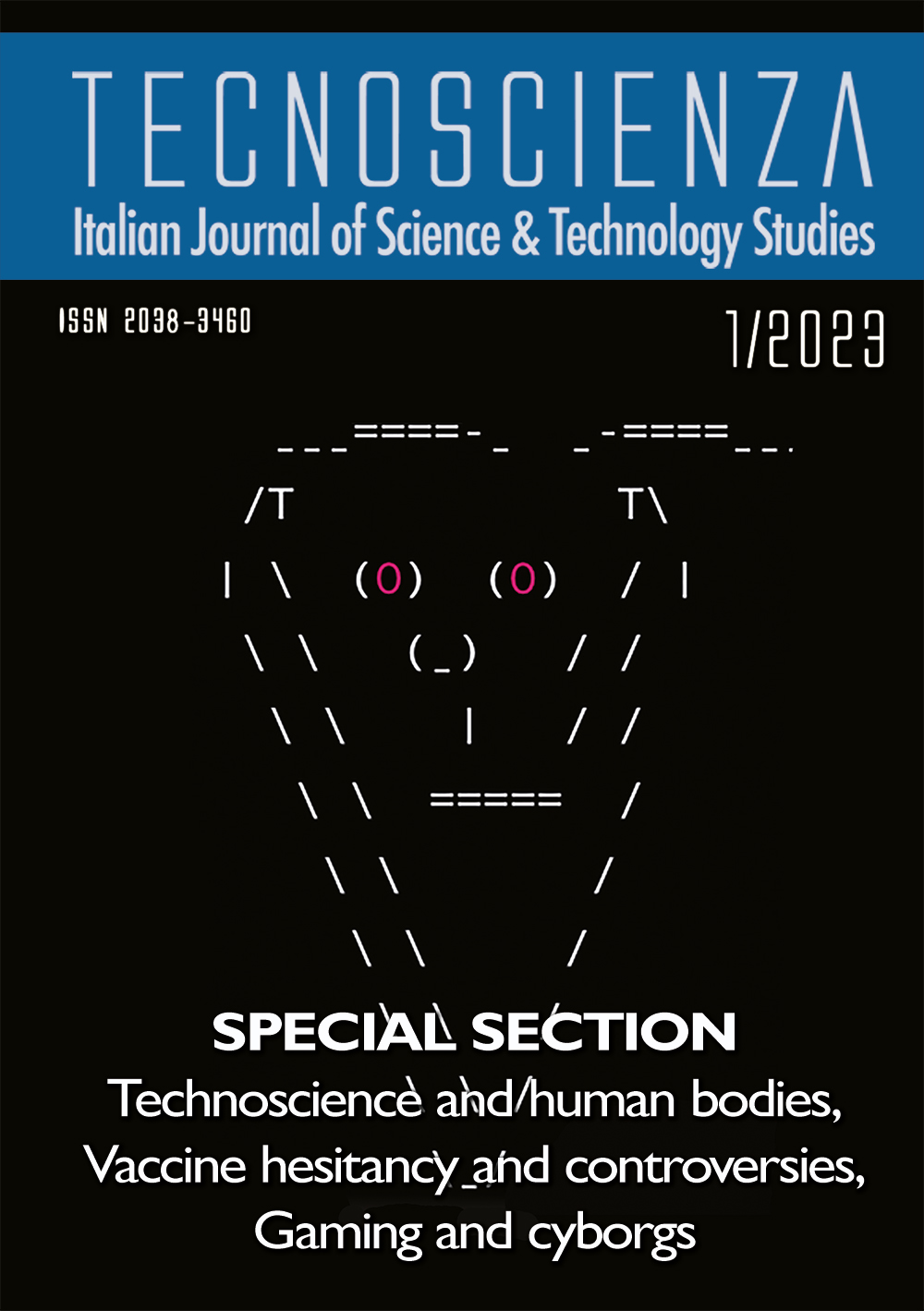Contested Visions of Cyborgs: Sociotechnical Futures in the Field of Brain-Computer Interfaces
DOI:
https://doi.org/10.6092/issn.2038-3460/17608Keywords:
cyborg, future visions, sociotechnical futures, science and technology studies, human-machine entanglement, brain-computer interfacesAbstract
Brain-computer interfaces (BCIs) are a cutting-edge neurotechnology that allows direct interaction between the neural system and external electronic systems. Over the past decade, the field of BCI has witnessed far-reaching promises and expectations, especially regarding the merging of humans and machines. Drawing from the STS literature analysing the relationship between technological innovation and representations of the future, the paper looks at the field of BCIs and at the related expert-scientific debate as a discursive arena where particular visions of cyborg are enacted. Through the notion of visions, representations of the future and discourses of BCIs are explored and analysed within the scholarly literature. Whilst the future of these technologies is usually approached through the question: “Are we all going to become cyborgs?”, the question addressed in this contribution is the following: “Which kind of cyborgs are enacted here?”. The findings reveal two visions of cyborg; the first considers the subject’s intentionality as a key element in steering the human-machine interaction, while the second looks at human-machine entanglement as a machine adaptation that takes place beyond the subject’s intentionality. A detailed analysis also shows how these visions are enacted as assemblages of different discursive repertoires and associations mediating and shaping specific cyborg visions.
Downloads
Published
How to Cite
Issue
Section
License
Copyright (c) 2023 Roberto Favalli

This work is licensed under a Creative Commons Attribution 4.0 International License.





